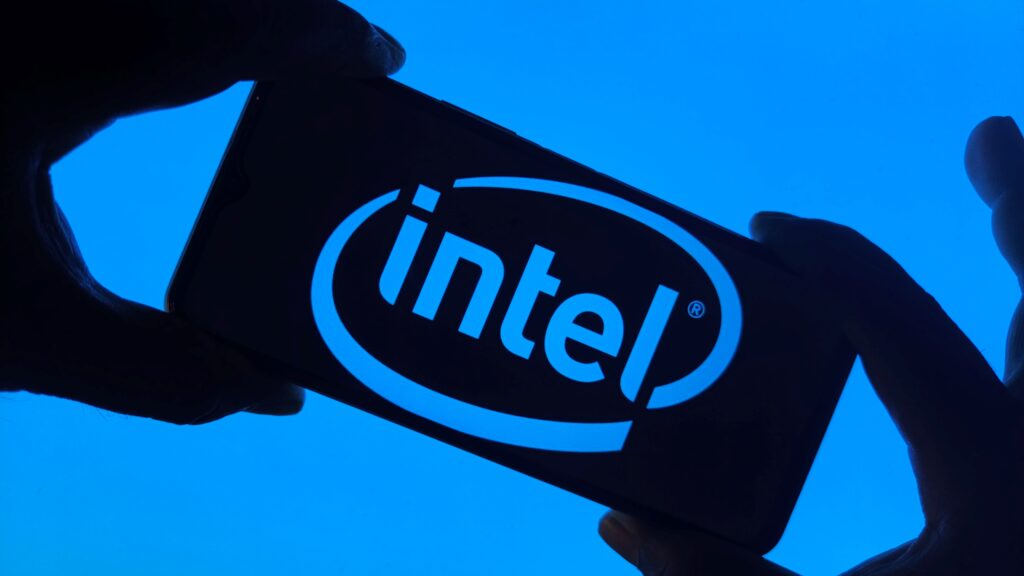US Secretary of Commerce Howard Lutnick said on Friday that Washington will take a 10% stake in Intel.
“This historic agreement strengthens American leadership in semiconductors. It will grow our economy and secure our technological edge,” Lutnick wrote on X. He posted the statement alongside a photo of himself with Intel CEO Lip-Bu Tan.
President Donald Trump revealed the deal earlier in the Oval Office. He called it “a great deal for them.”
Shares of the Santa Clara-based chipmaker jumped more than 5% on Friday.
Intel confirmed in a statement that the US government will invest $8.9bn (£6.6bn) in Intel common stock.
Investment through redirected grants
Intel said the money will come from grants already awarded but not yet paid. This includes funds promised under the CHIPS and Science Act, passed during President Joe Biden’s administration.
“As the only semiconductor company that conducts leading-edge R&D and manufacturing in the US, Intel remains committed,” Tan said. “We will ensure the world’s most advanced technologies are American made.”
Tan praised Trump’s push on US chip manufacturing. He called the president’s policy a driver of “historic investments in a vital industry tied to national security.”
The CHIPS Act aims to bring semiconductor production back to the United States.
Intel struggles to keep pace
Intel has faced difficulties expanding its chip capacity in recent years. It lags behind rival Nvidia, whose market cap has surged past $4tn while Intel’s sits near $100bn.
Once a Silicon Valley icon, Intel missed opportunities in mobile computing. It also failed to seize leadership in artificial intelligence, where Nvidia dominates.
Trump’s criticism of Intel CEO
In recent weeks, Trump attacked Intel and called for Tan’s resignation. He accused the CEO of having problematic ties to China.
Trump described Tan as “highly conflicted” over alleged investments in firms linked to the Chinese military.
Tan rejected the claims as “misinformation” in a note to staff. He defended his record, stressing he had always operated within the law and ethical standards.
Tan, a US citizen, was born in Malaysia and raised in Singapore. American law allows investment in Chinese companies.
Trump’s attack followed a letter by Republican Senator Tom Cotton to Intel’s board. Cotton questioned Intel’s ability to be a “responsible steward” of taxpayer money and to follow security rules.
After the attacks, Tan met Trump at the White House.
A creative move by Washington
White House Press Secretary Karoline Leavitt described the proposal earlier this week as “a creative idea that’s never been done before.”
The Trump administration also ordered Nvidia and AMD to hand over 15% of revenue from AI chip sales to China, according to reports.
Jacob Feldgoise, a Senior Data Research Analyst at Georgetown University, compared the government’s stake in Intel to previous grant funding.
“It serves the same objective,” Feldgoise said. “It reflects a more direct role in private markets to advance US security and economic goals. The focus is on regaining technological leadership in semiconductor production.”
The deal is rare in today’s era but not without precedent.
Past examples of government stakes
During the 2008 financial crisis, Washington took a majority stake in General Motors, which was near bankruptcy. The government later exited, taking a loss of about $10bn.
Feldgoise noted that Trump’s administration used a similar model earlier this year with MP Materials. The Nevada-based company mines rare earth metals.
That deal faced scrutiny from watchdog groups after revelations that the Department of Defense relied on a Cold War-era law to bypass procurement rules.


